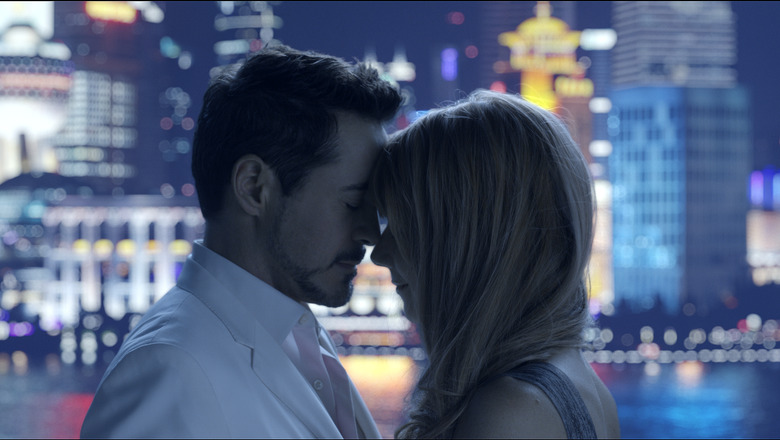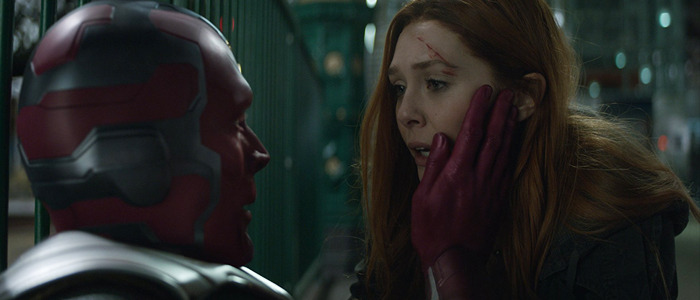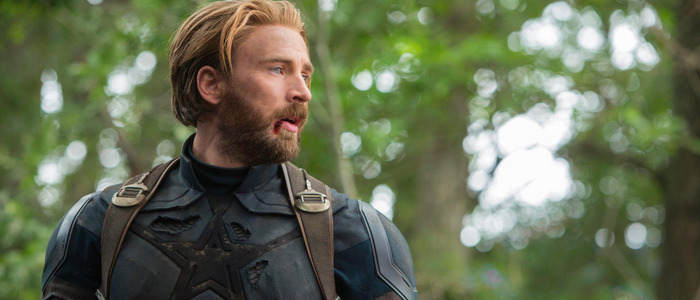The Marvel Cinematic Universe Has A Serious Romance Problem
(Welcome to The Soapbox, the space where we get loud, feisty, political, and opinionated about anything and everything. In this edition: after the release of Avengers: Infinity War, Lindsey Romain takes stock of the MCU's romance problem.)The Marvel Cinematic Universe is, at best, a series of intricately laced human stories amplified and filtered through the lens of absolute power. At worst, it is a series that never hits the emotional highs and lows of its characters, favoring spectacle and applause over the metrics of human condition. Avengers: Infinity War falls somewhere in the middle of this chart. It is undoubtedly geared to deliver stadium-style hoots and hollers, but goes for the jugular in a few key moments. You'll laugh, you'll cry. It's a lot of movie.It's also a good reminder that the MCU is loaded with troubled romances that have a hard time feeling relevant. It wouldn't be much of a problem if the film's climax wasn't anchored almost totally on the relationship between a young woman and a character that is essentially a sentient Siri in human skin, a couple so important that we have to buy that they would risk humanity to save their love. The highest of stakes are predicated on two characters the world probably wouldn't miss that much, but Infinity War still begs us to fret over. Even though, by my measure, it doesn't care itself about developing Wanda beyond what she provides to male narratives, or Vision beyond his omniscient but hackneyed origin story. That sort of sums up Marvel romance in a nutshell: hollow and unearned fabrications that only matter apocalyptically.There are many layers to MCU's romance problem, so let's take a deeper look at what it's done right, what it can't seem to master, and what it might do to rectify this issue going forward. Spoilers ahead.
There Are A Few Exceptions To The "Bad Romance" Thing
Admittedly, the MCU has done a pretty good job with two of its central love stories: Tony Stark and Pepper Potts, and Steve Rogers and Peggy Carter. The former are the most consistent through these films, despite Pepper's minimal screen time. The latter are the doomed, mystical romantic saga; their love never fully blossomed, and so it exists in an aspirational, dreamlike permanence. I don't know that either couple is wholly satisfying, but their love is a beacon through their male lead's emotional arcs.Tony and Pepper have a cool and collected sort of love. He's the billionaire playboy, she's his orderly secretary. They flirt their way through the first two Iron Man films before settling into a steady domestic partnership. Much of Iron Man 3 is centered on their tempestuous affection, him obsessed with his own high-tech order and her stuck in the crossroads. Infinity War puts the relationship into a new sort of focus: they are now comfortably together, but she wants him to quit Avenging and he just can't do that. This forces Pepper into the unfortunate role of nagging girlfriend; she begs Tony to stay out of the Thanos conflict, despite his powerful tech and leadership role. She is shuffled to the sidelines to serve as his moral conscience, which, this late in the game, is a disservice to a character who deserves more dynamism.Steve and Peggy are probably the most functional of the couples because they exist mostly in the margins of fantasy. Their fated "first dance" is a concept that haunts Steve; the enormous loss of what could have been is a stain on his obligations as Captain America. So prominent is that idea that in Age of Ultron, his worst nightmare is knowing he can't return to the life he's lost – specifically Peggy. He returns to Peggy on her deathbed, and she never lost sight of him either, but their love was always a mirage. Still, it remains the MCU's most consistent and arguably important love story, because it's such a big part of who Steve is.
But Everything Else Is Pretty Bad
As lovely as those two couples may be, their relationships don't necessarily play into the larger galactic conflict the way Vision and Wanda, or Peter Quill and Gamora, or even Natasha and Bruce do. All of those pairings feel thankless and dutiful in ways that don't actually grow either party, but are foisted into major life or death stakes anyway.As I mentioned before, Wanda and Vision's love is the driving motivator for much of Infinity War. Wanda – like Black Widow, whose romance with Bruce is one of Ultron's more careless attributes – is an enigma beyond what she provides to male narratives. After the death of her twin brother, she was immediately paired up with Vision. Their romance has comic roots, yes, but film is a different medium, and Wanda doesn't need a romance to make her interesting, the way Falcon and Rhodes and Drax and Coulson and Heimdall and Loki and Nick Fury and other prominent non-lead males aren't saddled with romantic exposition as a means of character development. Their heroism isn't defined by their ability to express romantic love, but by their actions and nobility.That's not to say there aren't women in the MCU who don't exist non-partnered (Maria Hill, Nebula, and Mantis), or that men don't fall prey to its trap too (Hawkeye). It's not just an issue of how it affects the women characters, but how it affects major storylines, and how the main Avengers storylines can muck up character work done in other films. Take Quill and Gamora, for example. Quill's abandonment issues and Gamora's love for her sister are foundations in Guardians of the Galaxy Vol. 2, and though their romance feels a little weak, they are two well-developed people outside of who they are together. Unfortunately, Infinity War forced them into a scenario that would work better if we had more time to be emotionally invested in their pairing. As with Vision and Wanda, sacrificing Gamora could mean saving the world. Those are enormous stakes for a couple that don't have the same resonance or build-up as a Tony and Pepper.
Also, Stop Queerbaiting Us
Ah yes, the Steve and Bucky-shaped elephant in the room. I would argue that Steve and Bucky have the most salient love story in the MCU, and it seems the fans would agree. But Marvel will never make them non-hetero, and Disney will continue its history of queerbaiting. (See also: La Fou in the live-action Beauty of the Beast, or Finn and Poe in Star Wars.) Steve risks humanity for Bucky and unlike the Infinity War couples, it actually feels believable. Bucky loved Steve before he was Captain America and stood against the odds to protect him. After he was transformed to the militant Winter Soldier, Steve returned the favor, never giving up on the friend he knew was still in there. Theirs is the true love story of the MCU as far as I'm concerned, and it's a shame it'll never be realized the way it deserves.
There Are Ways To Fix These Issues
The biggest point I'm trying to make here is that the MCU could avoid these problems if it didn't put so much weight on these couples, and didn't stuff romantic sideplots into every film. Let Tony and Pepper shine, but don't force Natasha to make gooey eyes at Bruce, and don't predicate humanity's survival on a love story with very little build up or nuance. The best relationships in the MCU are currently the non-romantic ones: Steve and Bucky (sigh), Tony and Peter, Rocket and Groot, Thor and Loki, Gamora and Nebula, Natasha and Clint. Likewise, one of the joys of Infinity War was seeing unlikely pair-ups between characters you wouldn't expect. The Avengers work best when they're exploring why they matter as a team. More of that, please. Less of letting romance serve as character development.



